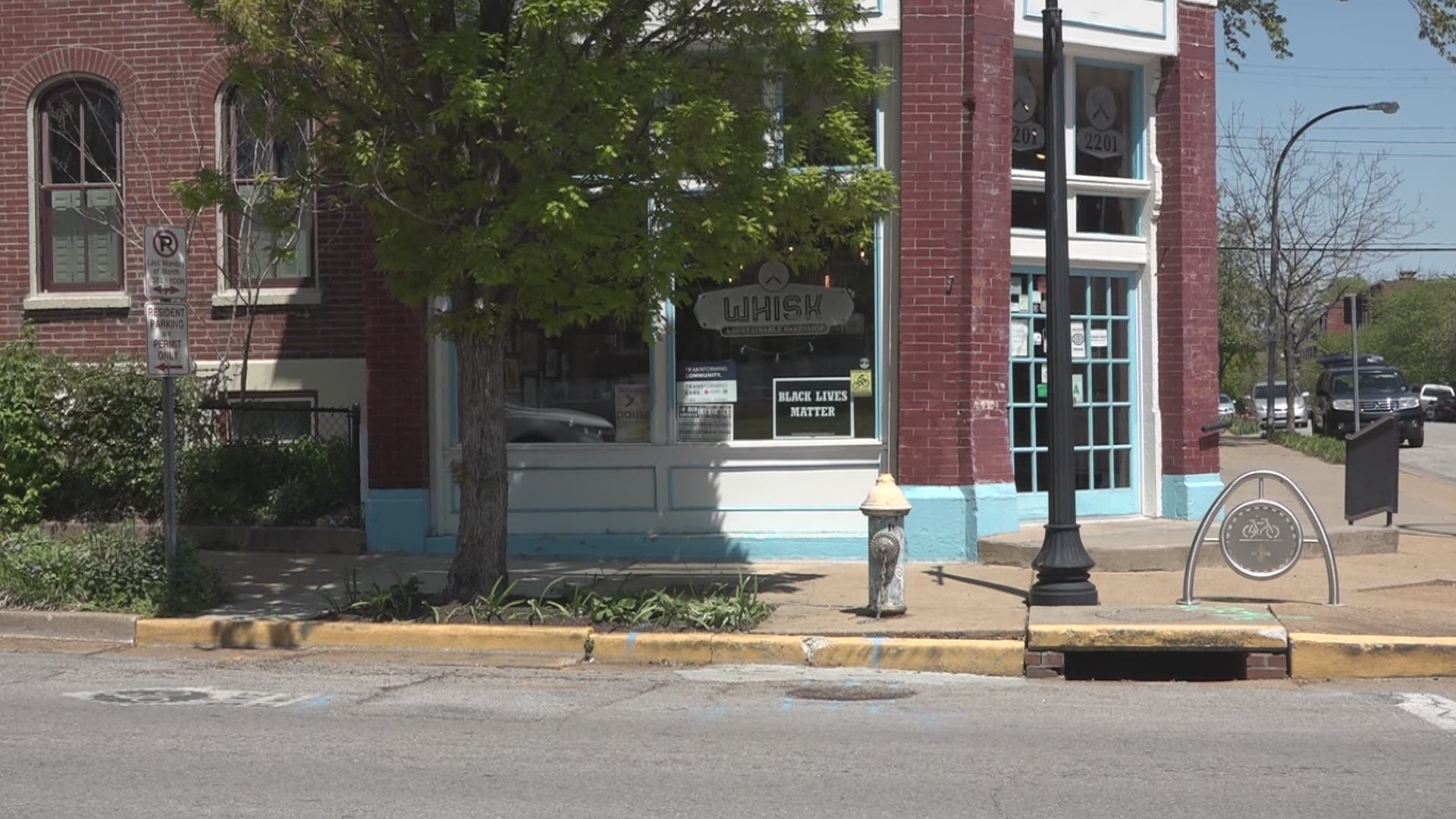ST. LOUIS — Kaylin Wissinger’s Cherokee Street bakery doesn't just prioritize being environmentally friendly: it's literally its middle name.
“I feel like for a long period of time, people, the No. 1 question we would get here is, 'What does sustainable mean?'” said Wissinger, owner of Whisk: A Sustainable Bakery. “It was really fun to kind of be able to educate and inform and sort of explain to people from all walks of life what that means to us and the policies and practices that we have in place here.”
For the bakery, it means offering a menu of items made with in-season, local ingredients: Sourcing materials that way reduces the pollution that comes with packing and shipping ingredients from far away.
“That in itself is really sustainable. And then just supporting people, supporting our neighbors, really,” she said.
For other kitchens not actually named “sustainable,” the Green Dining Alliance can certify them as so. The Green Dining Alliance is a restaurant sustainability certification program of earthday365.
“We work in different capacities in helping them reduce their impact on the environment,” said GDA’s Victoria Donaldson.
If you've been out to eat or ordered takeout from local restaurants during the pandemic, your meal probably came with a side of waste. Some materials are easily recyclable if cleaned properly, but most aren't, like anything greasy or with a wax coating, Styrofoam or many types of plastic.
When you're placing an order, let the restaurant know what you don't want with your meal. Skipping the straws, utensils, plastic bags and extra containers saves you the trash — and the restaurant some money.
“Show restaurants that you know are doing the right thing as well. I think that's a huge thing because then it makes them feel good about what they're doing and they want to continue doing that,” Donaldson said.
The GDA encourages restaurants to offer different portion sizes to avoid throwing items away. At home, that could mean buying only what you know you can eat before it goes bad. In a landfill, food releases toxic gases as it breaks down — a leading creator of greenhouse gas emissions.
“When you think about the thousands and hundreds of thousands and millions of people who are [throwing away small food scraps], that's a lot of waste,” Donaldson said.
That's why composting is a better option for organic materials. Look into doing it yourself, or programs in your community. Wissinger and Donaldson recommend programs like Perennial City, St. Louis Composting and your city or county’s waste or forestry divisions as good places to start.
“It costs a little extra and it's a little more effort,” Wissinger said. “I think in the long run, it's absolutely worth it.”
You can hear more of this story on the Abby Eats St. Louis episode titled "This episode could change the world."
_________
About the Abby Eats St. Louis podcast:
The Abby Eats St. Louis podcast tells the story of St. Louis based on what’s on the table. From the hunger for local ingredients, to the booming brunch scene and the craving for creative cocktails, Abby dives into the nitty-gritty of how St. Louis grew to become the foodie town that it is.
Subscribe and download weekly episodes for free wherever you get your podcasts. We've included links below to some of the most popular podcast platforms.
Apple Podcasts | Google Podcasts | Spotify | Stitcher | TuneIn | Castbox

